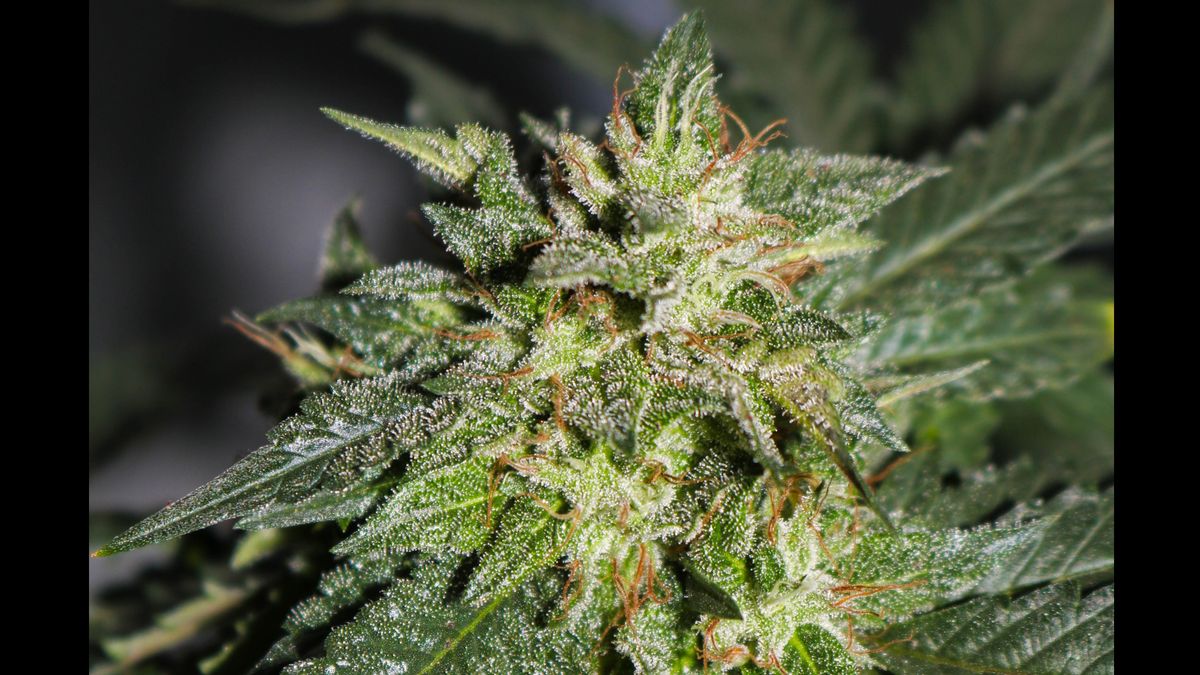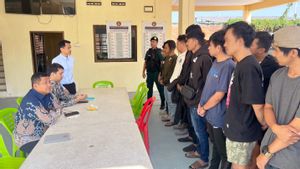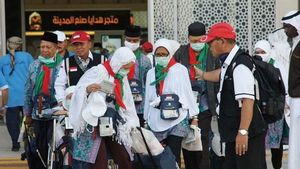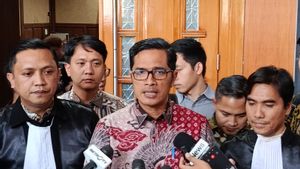JAKARTA - Member of Commission III DPR RI Hinca Panjaitan considered that the panel of judges should release Reyndhart Rossy Siahaan of all lawsuits. This is because marijuana is consumed for medical needs or for treating illness, not for hangovers.
Moreover, said the member of the Law Commission, based on Article 4 paragraph (1) of Law Number 35 of 2009 concerning Narcotics, it mandates that there is a guarantee of the availability of narcotics for the benefit of health services and / or the development of science and technology.
"For me, Reyndhart (Rossy Siahaan) must be free. There is no gray matter. The reason is simple, Article 4 guarantees the readiness of narcotics for health services or science," said Hinca in a discussion on the Imprisonment of Medical Cannabis Users broadcast on the YouTube VOI account. , Thursday, June 18th.
In addition, Hinca also cited Article 4 paragraph (2) of the Narcotics Law, which states that law enforcers must prevent, protect, and save the Indonesian nation from abuse of Narcotics. This is because Reyndhart is a victim of the use of narcotics who are in category I.
"So, at the beginning I said, research first, be thorough so it is clear. (To) Law enforcers, quickly stop. That is the biggest sin, if the prosecutor and the judge imprison the victim," said Hinca firmly.
Continuing, Reyndhart's attorney, Herie CN hopes that his client will be released from detention immediately. "Should have been released in accordance with the period of detention, because he has already served a sentence that runs for 7 months," said Herie.
Supposedly, today Reyndhart is scheduled to undergo a court hearing on the case of using marijuana for medical needs. However, the trial was postponed again because one of the members of the panel of judges was unable to attend.
"Today the agenda for reading the verdict should be. However, one of the judges was unable to attend due to illness. So, it was postponed until Monday tomorrow," said Herie.
Reyndhart, a man from Jakarta who migrated to East Nusa Tenggara (NTT) to do business, was arrested by the NTT Police because he was caught possessing marijuana at his boarding house on November 17, 2019. The marijuana is owned by Reyndhart solely to treat spinal cord disease he has suffered since 2015.
"Our client has suffered from spinal cord pain since 2015 and recurred in 2018," said Herie.
He told of the beginning of his client using marijuana for medical. Since his illness recurred, his client has been looking for information about drugs that can cure his illness.
Information obtained by his client from the internet mentions alternative medicine by drinking cannabis boiled water. Reyndhart took the liberty to try it.
After trying marijuana boiled water, the pain suffered by his client decreased. Finally, he then returned to order marijuana for Rp. 3 million for the sake of healing his illness.
In November 2019, the NTT Police's Narcotics Unit received information that a number of marijuana was entering Labuan Bajo. That's when the police arrested Reinhart.
Reinhart was arrested in West Manggarai. The police confiscated 428.2600 grams of marijuana. It is suspected that the item was ordered by Reinhart.
Right now, Reinhart was sitting in the prison chair. He was sentenced to one year in prison and charged with Article 127 paragraph 1 letter a of Law Number 35 of 2009 concerning narcotics abuse.
The Narcotics Law ProblemThe Coalition for the Advocacy Society for the Use of Narcotics for health encourages a humane justice in this case. They urged the Panel of Judges to release Reyndhart of all charges. Because, marijuana is owned and used for medical purposes.
"The coalition encourages the Panel of Judges to prioritize justice and legal benefits. So it is appropriate and very fair if the Panel of Judges is willing to release Reyndhart Siahaan of all charges," said Coalition spokesman Ma'ruf Bajammal in a press release received by VOI.
The impetus that is hard to imagine when Law 35/2009 was in trouble has not changed. However, as hope, what the coalition conveyed actually made a lot of sense. This means that the legal process must run according to justice. The coalition knows that there are many problems with Law 35/2009. The perspective of users as victims of narcotics abuse often escapes the judicial process.
The coalition has discussed the issue of this law in the article "The Origin of the Narcotics Law in Indonesia and the Myriad Problems Behind It". This law contains many problems. Apart from being obsolete, the unfulfilled perspective of the user as a victim of abuse often has implications for the imprisonment of users. So many people log in as users and leave as dealers.
"Because users are not criminals and they must be supported not locked up," said Bajammal.
The coalition consisting of LBH Masyarakat, Lingkar Ganja Nusantara (LGN), ICJR, Rumah Cemara, IJRS, EJA, Yakeba also urged the government to review Indonesia's narcotics policy. The Reyndhart case should be an eye opening momentum.
Research into the benefits of marijuana must be done. This is important as a basis for amending Law 35/2009 which was born from the ratification of the 1961 United Nations (UN) convention. For the Coalition, this law is not only obsolete, but also violates the right to fulfill public health.
Revised LawArticle 8 paragraph (1) of Law 35/2009 does prohibit the use of narcotics Category I for health services. However, the Coalition reminded that the original purpose of the Narcotics Law was to ensure the availability of narcotics for health services.
As written in Article 4 letter a of the Narcotics Law. The coalition considers that the Narcotics Law should not prohibit the use of narcotics for health services.
Furthermore, the Coalition emphasizes that the criminalization that occurs in people like Reynhardt and Fidelis is contrary to the main purpose of narcotics, which is for the health of the Indonesian people. As stated in Article 28H paragraph 1 of the 1945 Constitution, it is stated that the right to health services is a human right guaranteed in the constitution.
"Therefore, it is clear that the prohibition of narcotics for class I narcotics for medical purposes is against the norms of the right to health. Learning from the cases of Fidelis and Reynhardt, it is time for Indonesia to open up and provide opportunities for the use of narcotics class I for health services," he said.
The English, Chinese, Japanese, Arabic, and French versions are automatically generated by the AI. So there may still be inaccuracies in translating, please always see Indonesian as our main language. (system supported by DigitalSiber.id)













